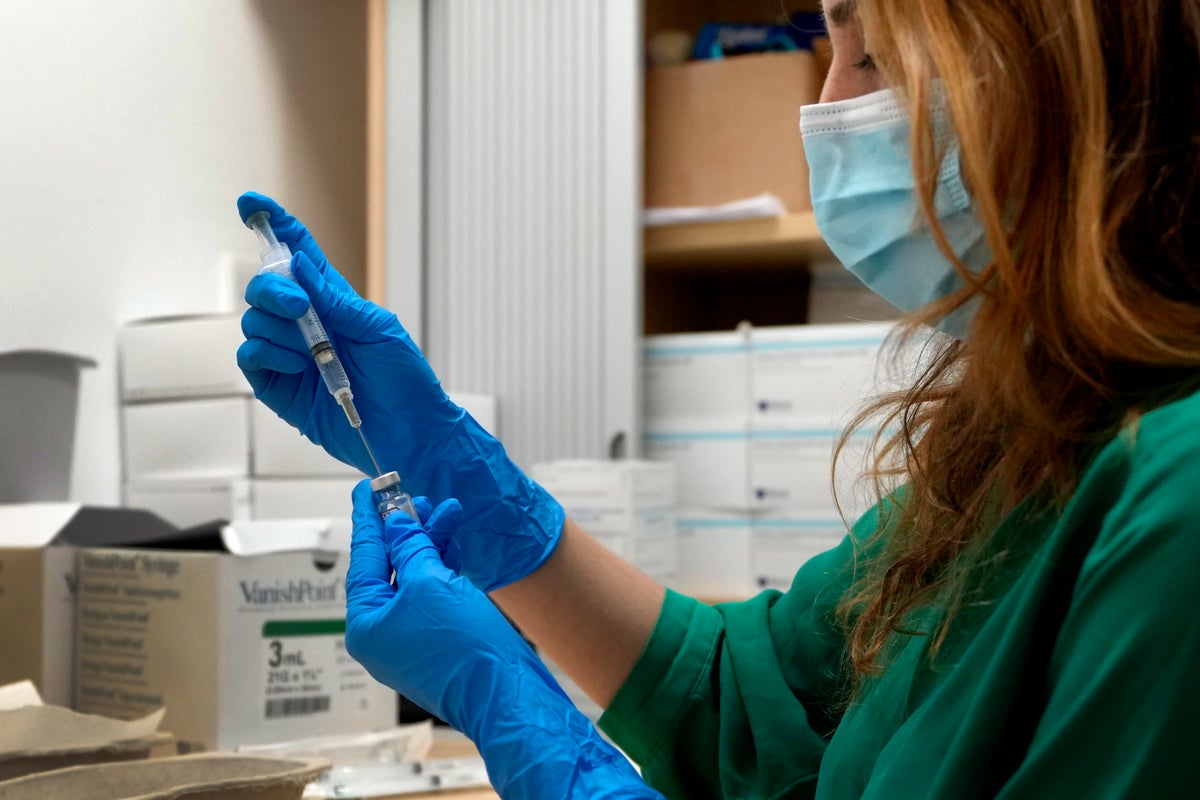
Researchers have made a “promising” breakthrough in the race to develop a “holy grail” vaccine that can offer protection against multiple Covid variants and a variety of common colds caused by other coronaviruses.
Efforts to design a so-called “pan-coronavirus vaccine” have so far proved largely fruitless. This type of jab would need to remain effective in the face of frequent mutations.
But scientists at the Francis Crick Institute now believe they have identified a genetic feature of the Sars-CoV-2 that appears to be “similar” across a number of coronaviruses and is less prone to mutations, making it a potential target for a pan-coronavirus, or universal, vaccine.
In their study, published today in Science Translational Medicine, the researchers investigated whether antibodies that are trained to target the S2 sub-unit of Sars-CoV-2’s spike protein can also neutralise other coronaviruses.
The S2 sub-unit tethers the spike protein to the virus membrane and allows the virus to fuse with the membrane of a host cell.
When used in mice, the scientists’ vaccine generated antibodies that were targeted to S2 sub-unit and capable of neutralising a variety of coronaviruses, including the seasonal “common cold” coronavirus HCoV-0C43, the original strain of Sars-CoV-2, Alpha, Beta, Delta, the original Omicron variant and two bat coronaviruses.
Kevin Ng, one of the study’s co-authors and a PhD student in the Retrovirus laboratory at the Francis Crick Institute, said the S2 area of the spike protein was a “promising target for a potential pan-coronavirus vaccine because this area is much more similar across different coronaviruses than the S1 area. It is less subject to mutations, and so a vaccine targeted at this area should be more robust”.
George Kassiotis, principal group leader at the Francis Crick Institute, said that a vaccine specific to the S2 sub-unit could potentially offer protection against current and future coronaviruses.
“This differs from vaccines that target the more variable S1 area which, while effective against the matching variant they are designed against, are less able to target other variants or a broad range of coronaviruses,” he added.
“There’s a lot of research still to do as we continue to test S2 antibodies against different coronaviruses and look for the most appropriate route to design and test a potential vaccine.”
An S2-specific vaccine would not necessarily stop people from being infected – as is seen with the current range of Covid jabs – but would seek to “prime” an individual’s immune system to “response to a future coronavirus infection”, the researchers said.
Earlier this year, a chief scientist at the World Health Organisation said that “developing a pan-coronavirus vaccine that can cover the different variants of Sars-CoV-2 and perhaps even go beyond and be effective against other coronaviruses would be the holy grail”.
Soumya Swaminathan told the British Medical Journal: “It appears to be scientifically quite feasible to develop one in the next couple of years — that’s partly because of the huge amount of research that’s gone into Sars-CoV-2.”







